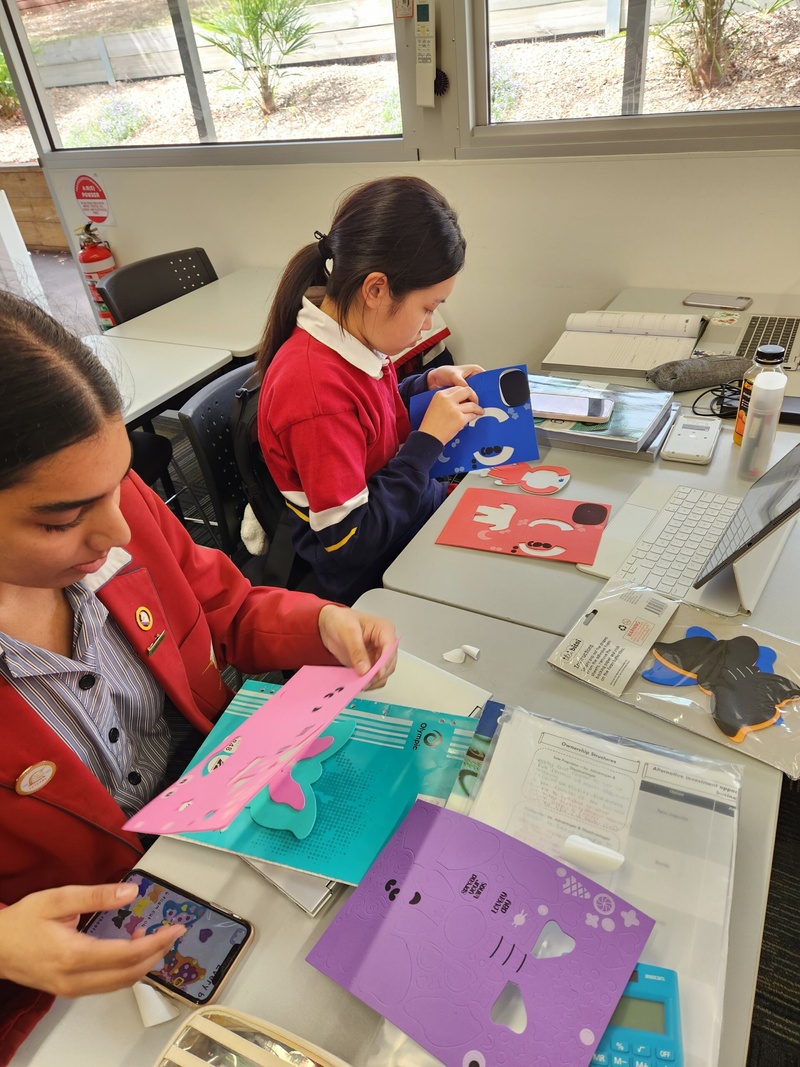Accounting involves modelling, forecasting and providing advice to stakeholders through the process of collecting, recording, reporting, analyzing and interpreting financial and non-financial data and accounting information. This data and information is then used to inform decision-making within the business with a view to improving business performance. A large emphasis is placed on the ethical considerations businesses must consider in their decision-making.
A Future in Accounting?
VCE Accounting prepares students for a university or TAFE vocational study pathway to commerce, management and accounting, leading to careers in areas such as financial accounting, management accounting, forensic/ investigative accounting, taxation, environmental accounting, management and corporate or personal financial planning.
Accounting and Decision-Making for a Trading Business
In this unit students develop their knowledge of the accounting process for sole proprietors operating a trading business. With a focus on inventory, accounts receivable, accounts payable and non-current assets, students use manual processes and ICT, including spreadsheets, to prepare historical and budgeted accounting records and reports. Students spend time discussing and debating the ethical considerations required by businesses when making decisions. They also explore the various systems available to best manage and safeguard their inventory, accounts receivable and non-current assets. Financial indicators are used to measure and compare business performance and students then learn to make recommendations to improve on the results of the business.
ACCOUNTING AND DECISION-MAKING FOR A TRADING BUSINESS
In this unit, students develop their knowledge of the accounting process for sole proprietors operating a trading business, with a focus
on inventory, accounts receivable, accounts payable and non-current assets. Students use manual processes and ICT, including spreadsheets, to prepare historical and budgeted accounting reports. They use relevant financial and other information to predict, budget and compare the potential effects of alternative strategies on the performance of the business. Using these evaluations, students develop and suggest to the owner strategies to improve business performance.
- Area of Study 1: Accounting for inventory
- Area of Study 2: Accounting for and managing accounts receivable
and accounts payable - Area of Study 3: Accounting for and managing
non-current assets
FINANCIAL ACCOUNTING FOR A TRADING BUSINESS
This unit focuses on financial accounting for a trading business owned by a sole proprietor. Students learn to use the double entry system including the General Journal, General Ledger and Inventory Cards. They record financial data and prepare reports (Income Statement, Balance Sheet and Cash Flow Statement) using the accrual basis of accounting and the perpetual method of inventory recording. Students also learn to interpret and analyse the information reported and provide advice to business owners on how to improve business performance.
RECORDING, REPORTING, BUDGETING AND DECISION-MAKING
This unit has a strong focus on Balance Day adjustments including the various methods of depreciation. The treatment of bad debts and disposal of non-current assets is also explored. Students learn to prepare budgeted reports (Income Statement, Balance Sheet and Cash Flow Statement) and provide recommendations on managing and developing strategies to improve business performance. At all times the financial effects of ethical issues on the businesses operations are discussed and considered.
Assessment
School-assessed coursework for Unit 3 will contribute 25 percent to the final assessment
School-assessed coursework for Unit 4 will contribute 25 percent to the final assessment
The level of achievement for Units 3 and 4 is also assessed by an end-of-year examination which will contribute 50 percent to the final assessment.

Student Point of View
What kind of learner is best suited to study this subject?
Independent, self-motivated,
What key skills are required for success?
Attention to detail, ability to apply theory to practical situations
What are three most engaging topics studied?
Ethical considerations
Advising business owners on how to be successful
Applying what we learn to our own lives
What are the learning activities in this subject like?
Practical, interesting, sometimes challenging
What advice would you give to a student about to embark on this subject?
Accounting is a fantastic subject to balance your learning load. It is skills based and therefore, provided you keep up-to-date with classwork, there is not a heavy study load before assessments. This is especially beneficial during exam periods, as it allows you a little extra time to study for more content heavy subjects.
What students say…
- Accounting is one of my favourite subjects, I find the work calming as it is structured and I always know what to expect.
- There is no better feeling than when your Balance Sheet balances.
- I really enjoy thinking about the Ethics questions. Sometimes it is difficult to decide which is the best option when you are trying to balance the effects on the finances and reputation of the business and the possible effects on the environment.
Studies in VCE ACCOUNTING can lead to study and career options in the following areas:
Accountant
Auditor
Bank officer
Business analyst
Company secretary
Corporate treasurer
Diplomat
Financial advisor
Financial journalist
Financial planner/Manager
Human resource developer
Investment analyst
Management consultant
Marketing officer
Market researcher
Portfolio manager
Project manager
Statistician
Stockbroker
Tax agent
Teacher
Trade analyst
University lecturer
Valuer




